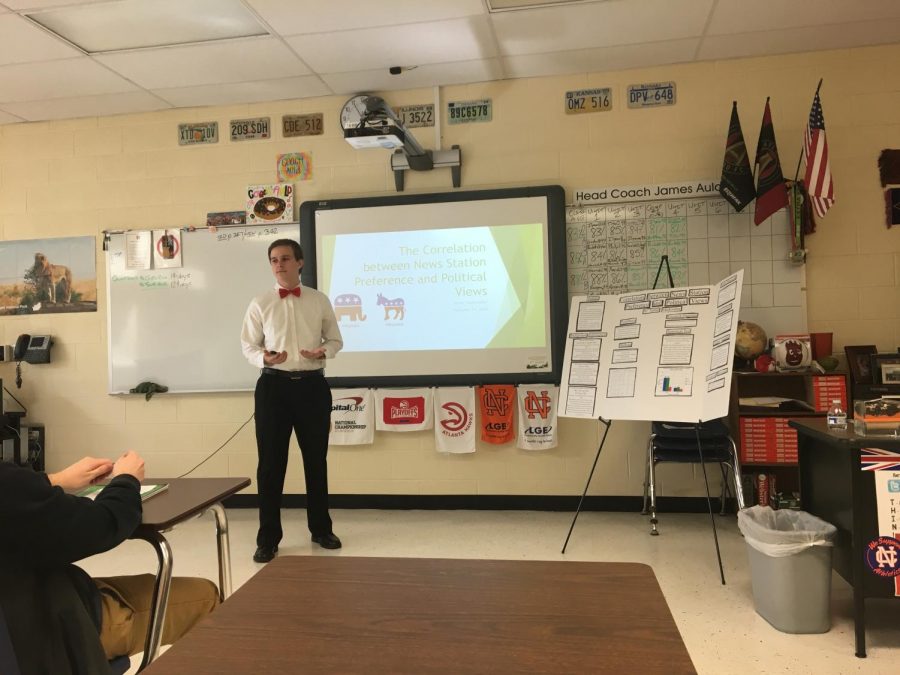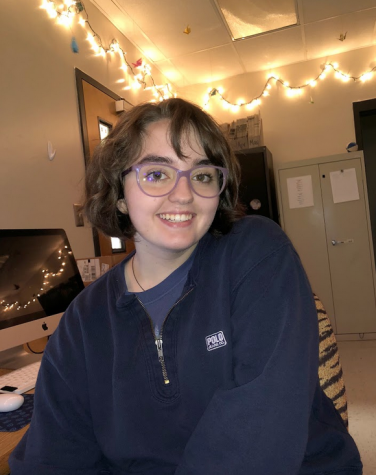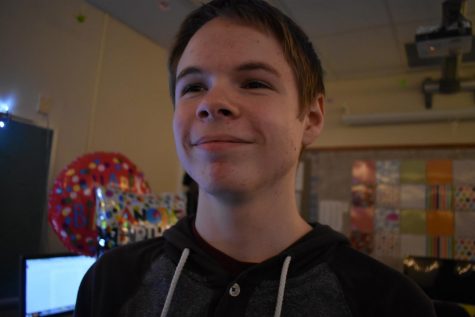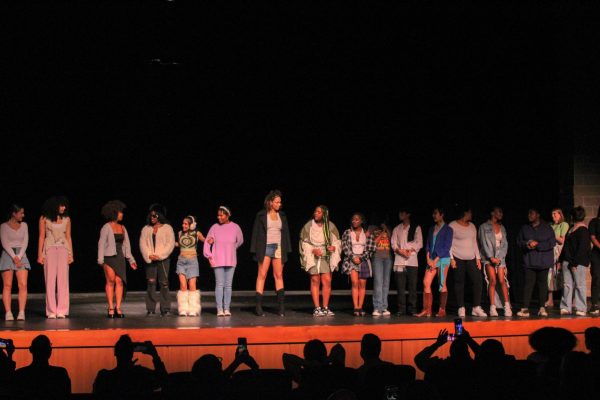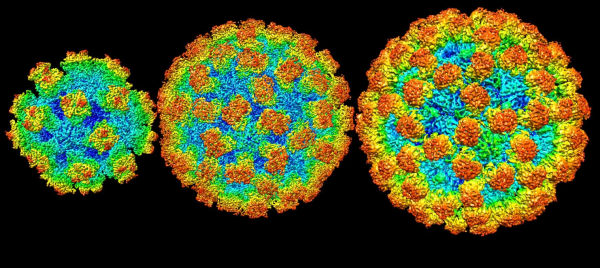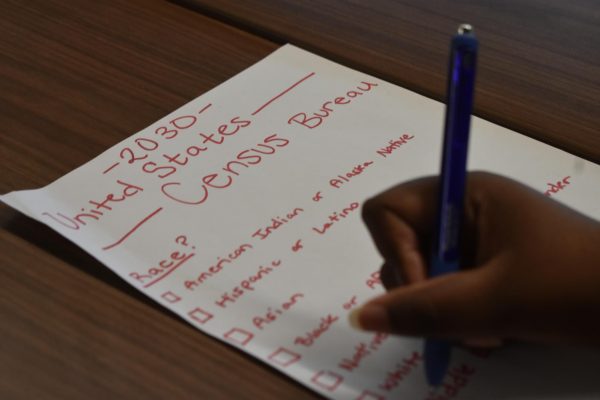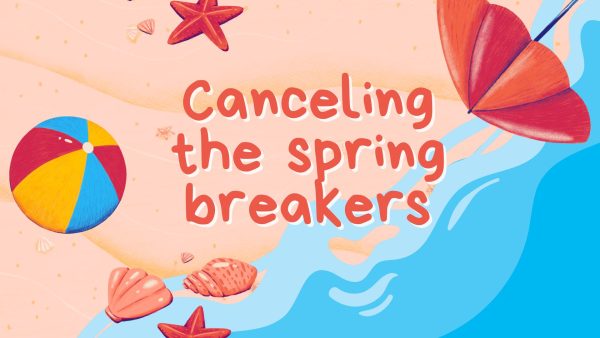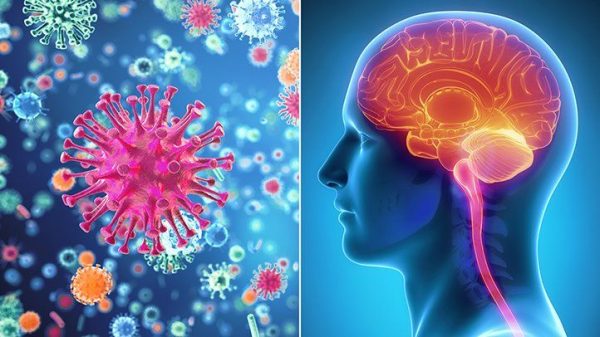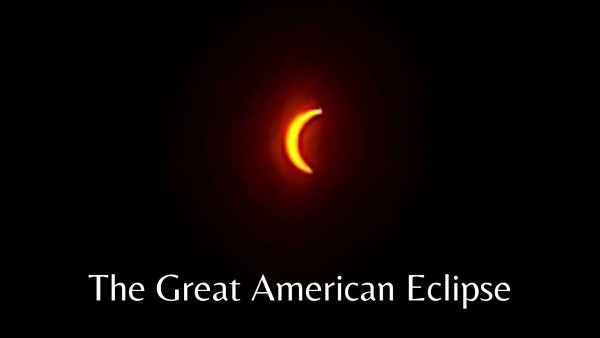From ASR to AP Research
Senior Turner Markwalter prepares to present his ASR project. Magnet students spent their junior years collecting data and doing research, culminating in the final ASR presentation during their senior years. “You can tell how much work they put into everything and even though it’s been a year, how well they know their information,” moderator and junior Chike Azuzu said.
February 16, 2018
The 2017-2018 school year marks the end of Advanced Scientific Research (ASR). ASR long stood as the junior class that tested Magnet students to move into the world of scientific research and exploring potential solutions to problems. The beginning of the class bore witness to the students struggling to find their own experiment. On February 3, seniors from the 2016-2017 class presented their project’s results in front of judges and onlookers, comprised mainly of current juniors taking the ASR class. They saw the hard work and dedication of the students laid out before them through these presentations.
“Research is always going to be uniquely challenging, it’s that way even at the baccalaureate level and beyond. There’s frustrations that come with research that don’t come with a traditional class, but there’s a lot to be gained. It teaches them that sometimes dead ends are as important as thoroughfare,” assistant principal and Magnet Coordinator David Stephenson said.
Working in their AP Macroeconomics class to piece their presentations together, the Magnet seniors used the past few weeks to put on the final touches. The process began in junior year and ended on the final presentation day on February 3.
“In Macro here at North Cobb, there’s really three different courses, one is preparing for AP Macro, then the end of course test, and also their senior presentation,” AP Macroeconomics teacher Dr. Pamela Roach said.
ASR and AP Macro worked together for years, culminating the terrifying Magnet senior presentations. Students daunted by the prospect of their first ever research class easily find themselves overwhelmed their junior year, giving the year its poor reputation.
“The class is like a bootcamp of research methods, research skills, understanding statistical analysis, and applying that to whatever research question that student came up with,” Roach said.
This year’s juniors stand as the last students to take ASR. Without any previous research experience, students spent half of the class learning and preparing for the project and the other half spent actually implementing their experiment. The stress of the unknown makes some students wary of continuing, especially when the year becomes stacked with AP English Language and AP US History, but this stress could change with the new sophomores, who already have AP English Language and AP Seminar under their belts with the implementation of the new bundle sequence for the program.
“Everything we do in ASR is a part of AP Research, the sophomores this year are actually coming to ASR with more research background so they will be better prepared to start,” ASR teacher Jennifer Johnson said.
Current sophomores began the Capstone bundle this year, adding another AP to their repertoire. Given the AP Seminar class’s structure, preparations for research began early, unlike the 2018 and 2019 class. The sophomores already possess an understanding of the research basics and can start working on potential research projects straight away in the new replacement class they will take their junior year, AP Scientific Research.
“Right now it’s a science credit but most universities don’t recognize it and its treated with a quality point but you don’t get an AP credit because you don’t take a test.
The main change is that students have to be done with research sooner but that’s fine since they’re more prepared,” Johnson said.
The new class stands as an edited version of ASR with similar structure but more experienced students. With the added benefit of the AP credit, students can carry their experience to college with them. All around the students win, they know the expectations and what a strong research projects entail.
“The research piece seems so daunting, that’s one of the reasons we wanted to add the sophomore classes in, so that the idea of research wouldn’t seem so overwhelming. They won’t have to start the junior research class from scratch, they already know what to study and what they are interested in,” Stephenson said.




